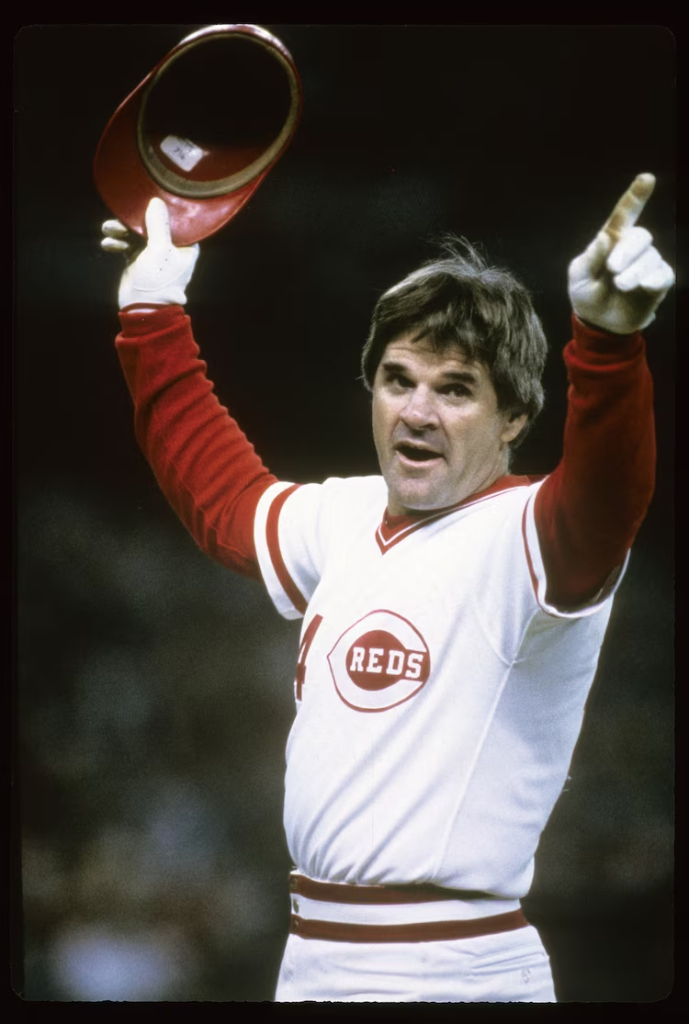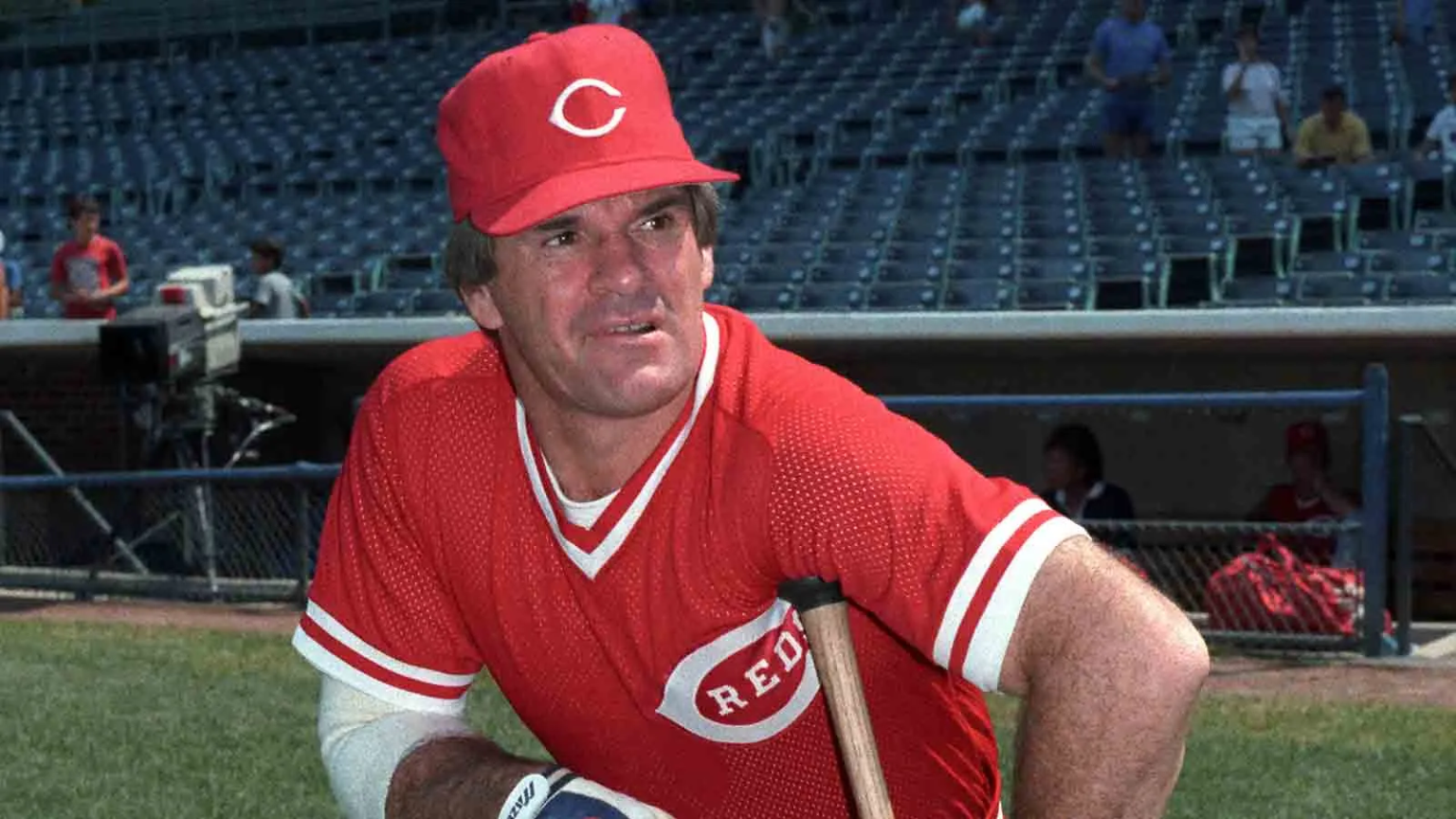Pete Rose: The Career of “Charlie Hustle”
Born Peter Edward Rose in Cincinnati in 1941, Rose rose to fame as one of the greatest baseball players of all time. Known by the nickname “Charlie Hustle,” Rose’s relentless drive and dedication on the field earned him a revered place in Major League Baseball. His career spanned 24 seasons, the bulk of which he spent with the Cincinnati Reds, and included time with the Philadelphia Phillies and Montreal Expos. He ended his career as baseball’s all-time hit leader, with a staggering 4,256 hits— a record that still stands today.

Rose’s accomplishments are legendary: he was a 17-time All-Star, a three-time World Series champion, and won both the National League Rookie of the Year and MVP awards during his career. His aggressive style of play and unmatched work ethic made him a fan favorite and earned him the respect of peers. The 1970s “Big Red Machine” era, when Rose led the Reds to back-to-back World Series championships in 1975 and 1976, cemented his place as a legend in the sport.
Despite his on-field greatness, the question “Did Pete Rose die?” now shifts focus to his complicated legacy.
A Career Overshadowed by Controversy
While Rose’s baseball achievements are undeniable, his legacy is equally defined by the scandal that rocked the sport. In 1989, after an investigation by Major League Baseball, it was revealed that Rose had bet on baseball games, including those involving the Reds, while he was their manager. This revelation led to his lifetime ban from MLB, a punishment that remains a divisive topic in the sports world.

The infamous “Dowd Report,” which documented Rose’s betting habits, sealed his fate. Though Rose initially denied betting on baseball, he later admitted to doing so in his 2004 autobiography My Prison Without Bars. He maintained that he never bet against his team, stating that he “wanted to win every game.”

Rose’s ban also made him ineligible for the Baseball Hall of Fame, a controversial decision that continues to be debated today. Despite repeated appeals, Rose was never reinstated, a situation that has led many to ask, “Did Pete Rose die without a chance at redemption?”
Tribute To Pete Rose’s Death
The news of Pete Rose’s death has sent shockwaves through the baseball community. Tributes poured in from fans, former teammates, and fellow athletes. Former MLB star Alex Rodriguez, who himself faced controversy during his career, took to social media to express his condolences: “Absolutely heartbroken to hear the devastating news about Pete Rose’s passing… Nobody loved baseball more than Pete, and I’ll miss him terribly.”
The Cincinnati Reds, the team with which Rose is most closely associated, also released a statement, expressing their heartbreak over the loss of the legendary player. “We must never forget what he accomplished,” Reds principal owner Bob Castellini said.
Even Major League Baseball, which had long maintained a distance due to his ban, extended its condolences to Rose’s family, recognizing his “greatness, grit, and determination on the field.”
The Legacy of Pete Rose: A Life of Triumph and Tragedy
Pete Rose’s life was one of both triumph and tragedy. While his unmatched achievements on the baseball field earned him the title of “Hit King,” the scandal that led to his ban from baseball left a lasting stain on his career. He spent years fighting for reinstatement and a chance at induction into the Baseball Hall of Fame but was never successful.

Despite the controversy, Rose’s accomplishments as a player are undeniable. His fierce competitiveness, his relentless drive, and his unyielding love for the game earned him a place in the hearts of baseball fans everywhere.
Pete Rose have passed away at the age of 83, but his legacy—both the highs and the lows—will remain a significant part of baseball history.
For those still asking, “Did Pete Rose die?”—the answer is yes, but Charlie Hustle’s spirit will live on in the annals of the sport he loved so much. #RIPPeteRose


